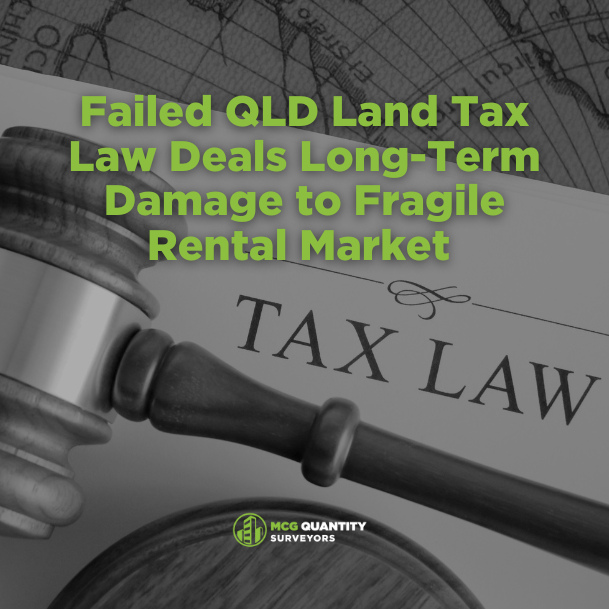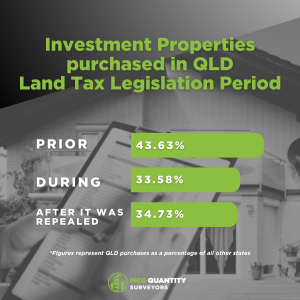Failed QLD Land Tax Law Deals Long-Term Damage to Fragile Rental Market

We recently conducted a study that shed light on the serious and lasting effects of the Queensland government’s failed attempts to alter Land Tax calculations. This research was shared across the national media. Through our research, we discovered that the mere announcement of the tax changes caused an exodus of investors from the rental market, leading to significant damage that has yet to be fully recovered. Despite the subsequent repeal of the legislation, the rental market continues to struggle.
Back in June 2022, the Queensland government introduced new legislation that would calculate land tax based on an owner’s entire Australian property portfolio, rather than solely on properties held within Queensland. This meant that investors would be required to pay taxes for land that received no benefits from Queensland services. Unsurprisingly, this announcement triggered a strong backlash, prompting the government to abandon the proposed changes on September 30th, 2022. However, the damage had already been done, as revealed by our research.
Our analysis focused on Queensland investment property purchases as a percentage of all Australian sales during the period before, during, and after the 98-day span when the changes were in effect. Prior to the announcement, Queensland was the top destination for investors, accounting for a significant 40.9% of all investment transactions. However, as soon as the changes were announced, that figure plummeted to 33.6%, representing a notable decrease of 7.3 basis points or 17.8% from the pre-legislation proportion. While the tax changes were eventually repealed, the recovery in investor activity has been modest, with investment property transactions only reaching 34.73%.
It’s disheartening to witness the enduring impact of those brief 98 days when the changes were looming. Our research demonstrates the increasing trend of long-distance investing, as investors are now more willing to seek opportunities elsewhere when faced with unfavorable legislation. The average distance between an investor’s residence and their chosen investment location has significantly increased, highlighting their mobility and discerning approach to jurisdictions that support investment. Moreover, the hasty implementation of anti-investor laws by governments further compounds the decline in investor participation.
As someone deeply involved in the real estate industry, I firmly believe that jurisdictions like Queensland should focus on attracting investment rather than discouraging it through anti-landlord rhetoric and ongoing restrictive measures that prioritize tenants over landlords. It is crucial for all levels of government to engage in constructive dialogue with landlords to find mutually beneficial solutions to the housing crisis. Rather than exclusively catering to specific tenant groups, governments must grasp the demand-supply equation and work towards sustainable resolutions.
The consequences of these policy decisions are already evident. The severe reduction in housing supply has resulted in an alarming increase in homelessness, placing immense strain on vulnerable individuals. According to the Queensland Council of Social Service (QCOSS), homelessness in Queensland has surged by over 20% in just five years, nearly triple the national average. Furthermore, the rental vacancy rate in Brisbane remains historically low at around 1%, intensifying the challenges faced by tenants.
Having witnessed firsthand the detrimental effects of the failed QLD Land Tax law, I stress the urgent need for the government to actively engage with landlords and work collaboratively to address the ongoing housing crisis. Neglecting this responsibility will only perpetuate the rental crisis and further disadvantage tenants. It is crucial for governments to recognize the long-term consequences of their policy decisions and strive for practical solutions that support a healthy rental market and ensure affordable housing for all.

